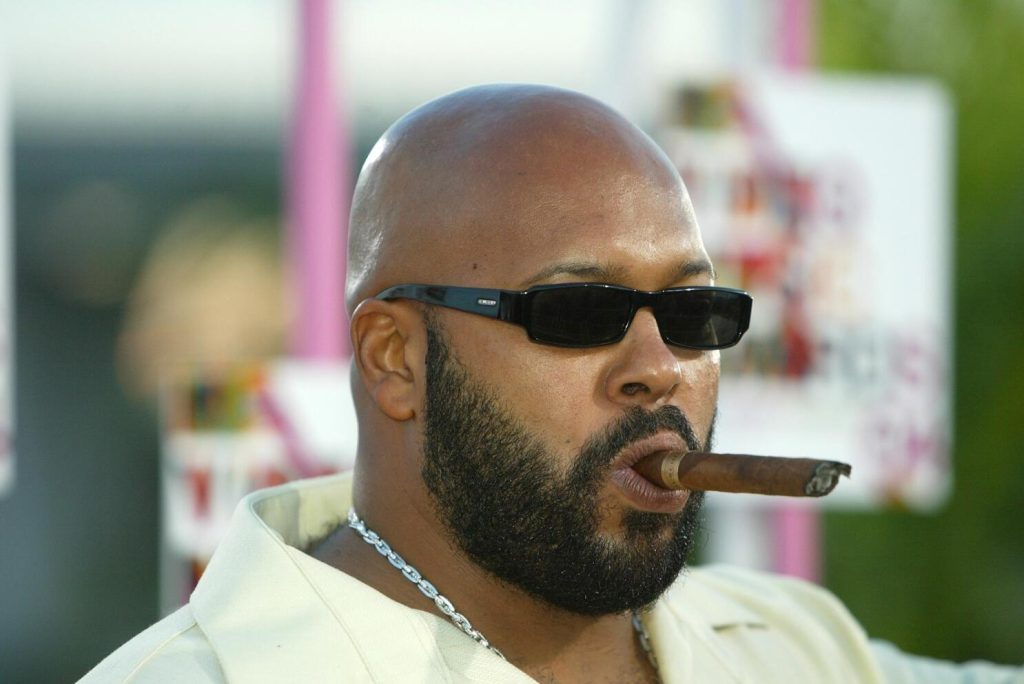Death Row Records
Suge Knight, the controversial co-founder of Death Row Records, played a pivotal role in shaping West Coast hip-hop in the 1990s. In collaboration with rapper and producer Dr. Dre, Knight launched Death Row Records under Time Warner's Interscope imprint. The label’s breakthrough came with Dre’s seminal album The Chronic in 1992, followed by the success of Snoop Dogg’s 1993 debut album and the 1994 Above the Rim soundtrack. These releases helped establish Death Row as a dominant force in the hip-hop world, particularly on the West Coast.
However, the label’s rise was marred by constant controversy. Knight, known for his tough persona, was also involved in various business ventures outside music, such as a car hydraulics business and opening the Las Vegas nightspot Club 662. Despite these ventures, Death Row’s involvement in alleged racketeering, gang activity, and drug trafficking sparked investigations by authorities. Knight himself had multiple run-ins with the law, facing charges ranging from weapons possession to assault and attempted murder. Additionally, the violent and misogynistic lyrics featured in many Death Row songs attracted significant criticism, including from C. Delores Tucker, the head of the National Political Congress of Black Women.
One of the label’s most significant signings came in the mid-'90s when Knight paid Tupac Shakur's bail following sexual assault charges. Shakur joined Death Row and released All Eyez on Me in 1996. Tragically, on September 7, 1996, Shakur was shot while riding in a vehicle driven by Knight. The rapper succumbed to his injuries, and Knight's probation violation from an earlier altercation at the MGM Grand led to a nine-year prison sentence, which he served from 1996 to 2001.
After his release, Knight attempted to revive Death Row under the name Tha Row, but his legal troubles continued. In 2003, he was imprisoned again for violating parole. By 2006, Knight had filed for bankruptcy following a multimillion-dollar court ruling in favour of a producer who claimed to have played a key role in Death Row's success. The label was eventually sold in 2008, and Knight’s ongoing legal issues persisted, including charges related to marijuana possession and theft.
Personal and Legal Issues
Murder Conviction
Suge Knight’s violent past continued to make headlines in 2015 when he was involved in a fatal hit-and-run incident in Compton, California. On January 29, 2015, Knight struck two men with his car, killing Terry Carter, his friend and co-founder of Heavyweight Records, while leaving filmmaker Cle Sloan injured with multiple fractures and head trauma. Witnesses alleged that Knight had argued with the men earlier on the set of Straight Outta Compton and then intentionally ran them over in a burger stand parking lot. Security footage confirmed the collision appeared intentional, though Knight later claimed he acted in self-defense.

Knight turned himself in after the incident and remained in jail, facing charges for murder. In March 2015, he was hospitalised for health complications, including blindness. His legal battles continued as he fired multiple attorneys, citing inadequate medical care. After collapsing in court, his bail was initially set at US$25 million, but was later reduced to US$10 million. His defence claimed he may have a brain tumour. Throughout 2015 and 2016, Knight changed legal counsel several times and faced delays in his trial due to his ongoing health issues, including blood clots.
In September 2018, Knight pleaded no contest to voluntary manslaughter for the hit-and-run and was sentenced to 28 years in prison: 22 years for killing Carter and an additional 6 years due to his third strike under California's three-strikes law. Knight's incarceration will keep him behind bars until at least October 2034, with no possibility of parole until then.
In addition to his manslaughter charge, Knight was indicted in 2017 for threatening Straight Outta Compton director F. Gary Gray, but the charges were dropped as part of his plea deal. Despite his severe health issues, including blindness and blood clots, Knight's influence on hip-hop is undeniable, though his legacy is forever intertwined with his criminal activities.






















